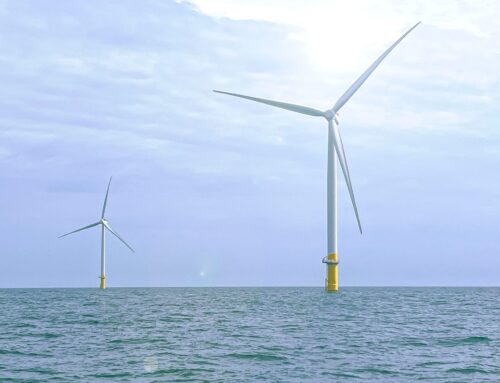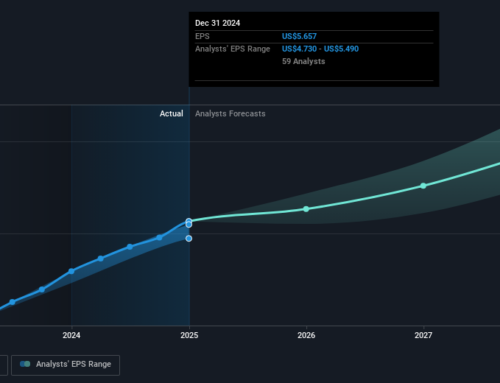World Environment Day 2025 mobilizes commitment, action to end plastic pollution globally
June 5, 2025
Jeju, Republic of Korea, 5 June 2025 – Communities, civil society, businesses, and governments around the world today marked World Environment Day under the theme #BeatPlasticPollution, with official celebrations held in the Republic of Korea’s Jeju Province.
Plastic pollution permeates every corner of the planet. By 2040, plastic leakage to the environment is predicted to grow by 50 per cent, and that pollution creeps into our bodies through the food we eat, the water we drink, and even the air that we breathe. World Environment Day 2025 calls for collective action to tackle plastic pollution. It comes exactly two months before countries resume negotiations towards a global treaty to end plastic pollution.
In his message for World Environment Day, UN Secretary-General António Guterres said: “Plastic waste clogs rivers, pollutes the ocean, and endangers wildlife. And as it breaks-down into smaller and smaller parts, it infiltrates every corner of Earth: from the top of Mount Everest, to the depths of the ocean; from human brains; to human breastmilk.”
“Yet there is a movement for urgent change. We are seeing mounting public engagement…
Steps towards reusability and greater accountability… And policies to reduce single-use plastics and improve waste management. But we must go further, faster,” he added.
The official ceremony for World Environment Day in Jeju, Republic of Korea, highlighted the urgency of ending plastic pollution, a global crisis that affects much of life on Earth.
“Governments, businesses, citizens, and the international community alike are all key players in making the circular economy for plastics a reality,” Lee Byounghwa, Vice Minister of Environment for the Republic of Korea, said at the official commemoration in Jeju. “Before plastic pollution ends us, we must beat plastic pollution ourselves. Let us set aside the comfort of convenience and start with small actions, together. When everyone acts, change happens.”
Korea has taken important steps to eliminate plastic pollution. Jeju Province is running an ambitious campaign to reduce plastic pollution, drawing on the combined might of governments, businesses, and citizens. The idea: to reduce the number of single-use plastic products used by consumers while reusing and recycling as much as possible, a process known as circularity. The province’s goal is to end plastic pollution by 2040. A pillar of that plan is convincing residents to abandon single-use plastics.
Speaking at the official celebration in Jeju, Inger Andersen, Executive Director of the UN Environment Programme (UNEP), said: “Ending plastic pollution is clearly a human health, planetary health, economic health and business health imperative.”
“Ending plastic pollution is possible. But we cannot lean solely on recycling. Only by tackling the full life cycle, as well as using circular approaches, can we ensure that plastic pollution stays out of our oceans, our soils, and our bodies,” she added. “This means a complete rethink of how we design, make, use and reuse plastics.”
Writing in the Republic of Korea’s Kukmin Daily, former UN Secretary-General Ban Ki-moon said: “In my 10 years as Secretary-General of the UN, I realized that plastic pollution is a global problem, and that a universal effort of the international community is needed to solve it. World Environment Day on June 5th should be a turning point for governments, civil society, companies, the scientific community, and the future generation to take action together.”
Governments, businesses, educational institutions, civil society, and communities worldwide joined in efforts to advocate for an end to plastic pollution and addressed plastic pollution in their spaces.
In Mexico, President Claudia Sheinbaum launched a National Strategy for Beach and Coast Cleanup and Conservation (2025-2030) on 5 June, aiming to eliminate 100% of plastic waste from the country’s beaches and coasts within five years.
Airports around the world – in Baghdad, Beijing, Brussels, Geneva, and Kansai (Japan) – reached millions of travellers with public messages about plastic pollution, as did other large public transport hubs, including metro stations in Beijing and Mexico City. Several cities lit up to mark World Environment Day – billboards in New York’s Times Square carried World Environment Day messages, while Geneva’s iconic Jet d’Eau lit up in green, as did city halls and prominent buildings in Brussels and other Belgian cities.
On 4 June, the Global Partnership on Plastic Pollution and Marine Litter (GPML) – for which UNEP serves as the secretariat – launched the Global Plastics Hub, a one-stop platform for data, knowledge, and collaboration to end plastic pollution. The Hub is intended to offer a single point of access for accurate, up-to-date information on marine litter, plastic pollution, and related topics, as well as a virtual forum in which stakeholders can come together.
As part of World Environment Day 2025, UNEP’s initiative, the Tide Turners Plastic Challenge, held a summit in India showcasing inspiring stories and best practices from youth leaders across the country who have taken meaningful steps to reduce plastic waste in their communities. Tide Turners is one of the largest youth-led environmental movements, mobilizing young people to take action against plastic pollution. Since its inception in Kenya, the programme has expanded globally and has engaged over 980,000 youth in 60+ countries as key drivers of environmental sustainability, particularly in the global campaign to #BeatPlasticPollution.
In Chicago, a 245-foot mural titled Stand Tall, created by acclaimed Dutch artist Mr. Super A, was unveiled on 31 May on the iconic Prudential Building (Pru)’s skyline. The mural was curated by the non-profit (SAM), and is part of the global #EcosystemRestorationMurals series, an initiative by SAM in collaboration with UNEP and the Food and Agriculture Organization of the United Nations (FAO), in support of the UN Decade on Ecosystem Restoration —a worldwide drive to halt, prevent and reverse the degradation of nature. Street Art for Mankind (SAM), and is part of the global #EcosystemRestorationMurals series, an initiative by SAM in collaboration with UNEP and the Food and Agriculture Organization of the United Nations (FAO), in support of the UN Decade on Ecosystem Restoration —a worldwide drive to halt, prevent, and reverse the degradation of nature.
More than 2,500 events marked World Environment Day in virtually every corner of the world, and millions of people engaged with the day’s hashtags – #WorldEnvironmentDay and #BeatPlasticPollution – which were trending worldwide. Notable international figures also lent their voice to the cause, including Indian Prime Minister Narendra Modi, His Highness Sheikh Mohamed bin Zayed Al Nahyan, President of UAE, Spanish Prime Minister Pedro Sanchez, and several UNEP Goodwill Ambassadors – Jason Momoa, Dia Mirza, Antoinette Taus and Alex Rendell.
Learn more about these activities here.
NOTES TO EDITORS
Find all World Environment Day communication materials here: feature stories, videos, and logos.
About World Environment Day
World Environment Day on 5 June is one of the biggest international days for the environment. Led by UNEP and held annually since 1973, the event has grown to be the largest global platform for environmental outreach, with millions of people from across the world engaging to protect the planet.
About the UN Environment Programme (UNEP)
UNEP is the leading global voice on the environment. It provides leadership and encourages partnership in caring for the environment by inspiring, informing and enabling nations and peoples to improve their quality of life without compromising that of future generations.
For more information, please contact:
News and Media Unit, UN Environment Programme
Search
RECENT PRESS RELEASES
Related Post



